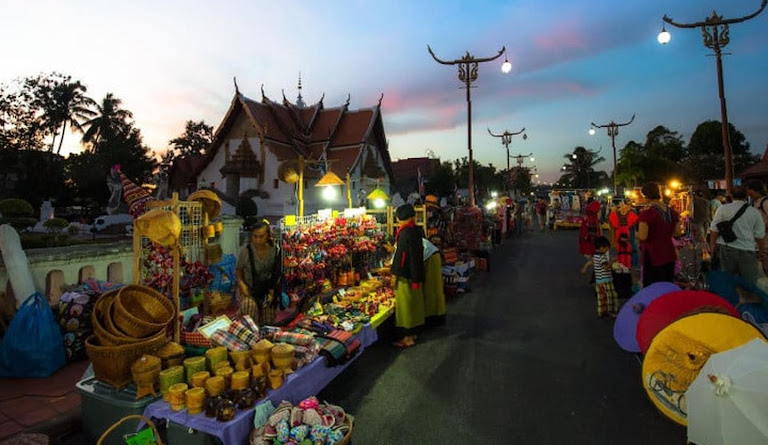Bangkok’s Tourism Subsidy: Fraud, Distrust, and a Glitchy App.
Distrust fuels a glitchy app, fraud, and red tape, hindering Thailand’s tourism recovery and eroding public faith.

The Thai government is subsidizing vacations. Again. On its face, a B1.76 billion co-payment scheme aimed at boosting domestic tourism during the low season. But squint and you’ll see not just economic stimulus, but a stark lesson in the perils of technological optimism. What should be a simple Keynesian nudge becomes a case study in the intractable challenge of building trust in systems — and the ultimately self-defeating logic of designing them for a world you wish you didn’t live in. The story, unfolding in Bangkok, isn’t just about a glitchy app. It’s about the incentives that erode faith in governance globally.
The Phuket News reports that the Tourism Authority of Thailand (TAT) is scrambling to fix problems with the registration process for this latest program. After previous schemes, costing B2.3 billion, were riddled with fraud, the agency is implementing a “complicated” registration process, to try and mitigate future problems. As TAT governor Thapanee Kiatphaibool explained, the difficulty is needed to “avoid large losses from fraud.” So far, over 1,400 fraud complaints are still being investigated stemming from past schemes.
The devil, as always, is in the details. The TAT switched from using the Krungthai Bank-managed “Pao Tang” application to its own “Amazing Thailand” app, using ThaID for verification. The goal is data ownership and tighter security. However, this shift immediately hit snags. The ThaID app could only accommodate 100 visitors per second, creating a massive bottleneck. Users were also unable to obtain one-time passwords (OTPs) for email verification. For many Gmail users, Google classified the emails as spam.
The core issue isn’t just technological incompetence, although there is clearly some of that. It’s a deeper problem of trust, or rather, the cascading effects of its absence. Every layer of complexity, every extra verification step, is a direct response to past abuses. But consider the meta-problem: each added layer of supposed security also creates new attack vectors for those determined to game the system, while simultaneously creating friction for honest participants. This, in turn, adds to the administrative overhead, makes participation more difficult, and potentially discourages legitimate users from taking advantage of the program. The fraud complaints are telling: they show the government and the citizenry engaging in a battle of wits, attempting to maximize individual benefits at the cost of the collective good.
Consider this: according to the World Bank, Thailand’s government effectiveness score, which measures the quality of public services and the degree of its independence from political pressures, has remained relatively stagnant over the past decade. Look further back, and the picture gets even more sobering: Thailand has cycled through constitutions and coups d’état, often justified by the need to root out corruption — suggesting a pattern of institutional instability that undermines the very possibility of building consistent trust. It lags behind its East Asian counterparts like Singapore and South Korea. This lack of confidence makes it harder to implement programs and creates a culture where both the government and citizens try to game the system. It’s a self-reinforcing cycle of distrust.
“Since the subsidy programme was first launched during the pandemic, a total of 1,489 fraud complaints have been filed in connection with bogus bookings to claim subsidies.”
Academic research, such as that by Professor Bo Rothstein at the University of Gothenburg on “quality of government,” shows that a high-trust society with effective institutions is more likely to achieve its policy goals. Rothstein argues that competent and impartial institutions are not simply outputs of a well-functioning state, but rather a key ingredient for building trust. The Thai experience shows how a system plagued by low trust can easily get bogged down in red tape and become vulnerable to fraud. He points to the Nordic countries as examples of states where citizens expect fairness and competence from their government — and are, by and large, not disappointed. That expectation, as much as any specific policy, is the foundation of their success.
Moreover, the focus on short-term solutions obscures deeper structural issues. Subsidizing hotel rooms is a band-aid on a wider economic malaise impacting Thailand’s tourism sector. Over-reliance on foreign tourism, the lack of diversification in tourism products, and insufficient investment in sustainable tourism infrastructure remain unaddressed. The scheme is temporary, creating a boom-and-bust cycle that fails to provide long-term benefits to local businesses and communities. It’s treating the symptom, not the disease. You might even argue it worsens the disease, by creating a short-term incentive structure that distorts the market and disincentivizes the kind of long-term investment that could actually fix the underlying problems.
The Bangkok travel subsidy saga isn’t just a local anecdote. It is a microcosm of the broader global challenge of building effective and trustworthy governance. It exposes the pitfalls of over-engineering solutions to address symptoms rather than root causes. The complexities of this scheme, born from the need to avoid past fraudulent bookings, underscore the sad reality that rebuilding trust is a far harder, longer process than simply rolling out an app. And perhaps, the truly bitter irony is this: in a world of AI and sophisticated fraud detection, the best technology can offer is a highly complex system that might just barely contain the problem. The more fundamental solution — a genuine change in Thailand’s social contract — is technologically agnostic. The hope, now, lies not in a perfect application, but in a deeper change to the country’s culture of economic integrity. And that, I suspect, will take more than a subsidy.









